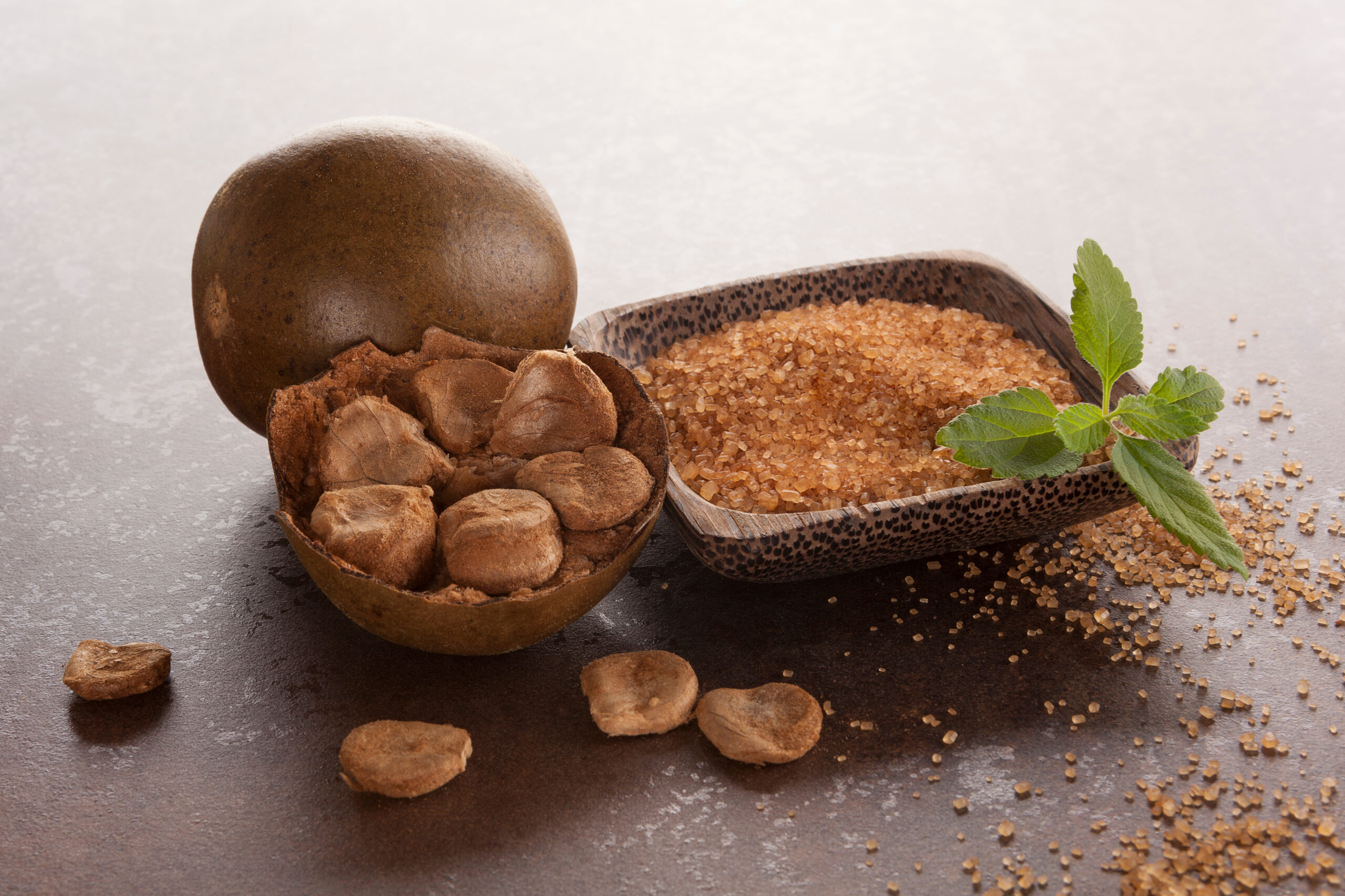In the quest for healthier dietary choices, many people are turning to natural sweeteners as an alternative to refined sugar and artificial sweeteners. Among these alternatives, monk fruit (Siraitia grosvenorii) has emerged as a standout contender. Monk fruit, also known as “luo han guo,” has gained popularity for its remarkable sweetness without the calories and its potential health benefits. In this comprehensive article, we will explore the extensive health benefits of monk fruit and why it’s considered a valuable addition to a health-conscious diet.
What is Monk Fruit?
Monk fruit is a small, round fruit native to southern China and northern Thailand. It has been used for centuries in traditional Chinese medicine for its potential health benefits. What makes monk fruit particularly fascinating is its intense sweetness, which comes from natural compounds called mogrosides. These compounds are about 150-200 times sweeter than sugar but contain zero calories, making monk fruit an attractive sugar substitute.
Nutritional Content of Monk Fruit
Monk fruit itself is low in calories and carbohydrates, but its sweetness is derived from mogrosides, which are considered the main bioactive compounds responsible for its sweet taste. Monk fruit also contains small amounts of vitamins and minerals, including vitamin C, which contributes to its overall health benefits.
Health Benefits of Monk Fruit
Here are some of the Monk Fruit benefits…
Calorie-Free Sweetener
One of the most significant advantages of monk fruit is its intense sweetness without the calories. This makes it an ideal sugar substitute for those looking to reduce their calorie intake or manage their weight without sacrificing sweetness.
Glycemic Control
Monk fruit sweeteners have a minimal impact on blood sugar levels. They have a glycemic index (GI) of zero, meaning they do not cause rapid spikes and crashes in blood sugar. This makes monk fruit a suitable option for individuals with diabetes or those looking to maintain stable blood sugar levels.
Antioxidant Properties
Monk fruit contains natural antioxidants, including vitamin C and mogrosides. Antioxidants help protect the body from free radical damage, reducing the risk of chronic diseases and supporting overall health.
Anti-Inflammatory Effects
Some studies suggest that monk fruit extracts may have anti-inflammatory properties. Reducing inflammation is crucial for preventing chronic diseases and maintaining optimal health.
Weight Management
Monk fruit sweeteners can be a valuable tool in weight management. By providing sweetness without calories, they allow individuals to enjoy sweet-tasting foods and beverages while reducing overall calorie intake.
Dental Health
Monk fruit does not promote tooth decay or gum disease because it doesn’t contain sugars that bacteria can feed on. It is a tooth-friendly sweetener, making it an excellent choice for oral health.
Reduced Sugar Consumption
Monk fruit can help reduce overall sugar consumption, which is beneficial for individuals looking to cut down on sugar without sacrificing taste. High sugar intake is linked to obesity, diabetes, and other health issues.
Digestive Health
Unlike some sugar substitutes that can cause digestive discomfort, monk fruit is generally well-tolerated and does not have a laxative effect, making it suitable for individuals with sensitive digestive systems.
Safe for Most Individuals
Monk fruit is considered safe for most people when consumed in moderate amounts. It does not appear to cause adverse reactions or side effects in the majority of individuals.
Monk Fruit Sweeteners and Extracts
Monk fruit sweeteners are available in various forms, including liquid extracts, granules, and powdered forms. These sweeteners can be used as a one-to-one replacement for sugar in recipes and beverages, making them a convenient choice for those looking to reduce their sugar intake.
When purchasing monk fruit sweeteners, it’s essential to choose products that contain pure monk fruit extract without added sugars or artificial sweeteners. Some commercial sweeteners blend monk fruit extract with other ingredients to achieve a sugar-like texture, so it’s important to read labels carefully.
Possible Monk Fruit Side Effects
While monk fruit sweeteners are generally regarded as safe and well-tolerated, there are a few considerations to keep in mind:
- Taste: Monk fruit extract has a distinct taste that some people may find slightly different from the taste of sugar or other sweeteners. It has a mild, fruity aftertaste that can vary depending on the product.
- Cost: Monk fruit sweeteners can be more expensive than some other sugar substitutes. However, a little goes a long way due to its intense sweetness, so a small amount can provide significant sweetness.
- Digestive Sensitivity: While monk fruit is generally well-tolerated, some individuals may experience mild digestive discomfort if consumed in large quantities. It’s advisable to start with small amounts to assess your tolerance.
- Availability: Monk fruit sweeteners may not be as readily available as other sweeteners in some regions. However, they can often be found in health food stores or online.
- Packaging and Additives: Some monk fruit sweeteners may contain additives or bulking agents to improve texture and flow. It’s a good practice to check the ingredient list and opt for pure monk fruit extract whenever possible.
Cooking and Baking with Monk Fruit
Monk fruit sweeteners can be used in a wide range of culinary applications, including cooking and baking. Here are some tips for incorporating monk fruit into your recipes:
- Measure Carefully: Monk fruit sweeteners are highly concentrated, so you’ll need much less than sugar. Follow the recommended conversion guidelines on the product packaging or use online conversion charts to adjust your recipes.
- Balance Flavors: Monk fruit extract can have a mild fruity aftertaste. To balance flavors, consider using complementary ingredients such as vanilla, cinnamon, or citrus zest in your recipes.
- Stability: Monk fruit sweeteners can be sensitive to heat and may lose some sweetness when exposed to high temperatures. It’s advisable to use them in recipes that don’t require prolonged baking at high temperatures.
- Experiment: Don’t be afraid to experiment with monk fruit sweeteners in your favorite recipes. With a bit of trial and error, you can find the right balance to achieve your desired level of sweetness.
Monk Fruit Benefits Conclusion
Monk fruit, with its natural sweetness and potential health benefits, is an attractive alternative to refined sugar and artificial sweeteners. Whether you are looking to reduce your calorie intake, manage blood sugar levels, or simply enjoy sweet-tasting foods and beverages without guilt, monk fruit can be a valuable addition to your diet.
However, it’s essential to use monk fruit sweeteners mindfully and in moderation, as with any dietary change, and consult with a healthcare professional if you have specific health concerns or conditions. Embracing monk fruit as a sugar substitute can open the door to a healthier, more balanced approach to sweetness, allowing you to savor the taste of nature’s sweet secret while prioritizing your well-being.
Here are some of the best superfood supplements on the planet: Top Greens Supplements
REFERENCES
I’m not just a supplement analyst. I’m an extremely qualified one! I am a Certified Nutrition Coach (CNC) and actually received my certification directly from the National Academy of Sports Medicine. I am also a Nutrition & Wellness Consultant, certified by the American Fitness Professionals Association (AFPA).



